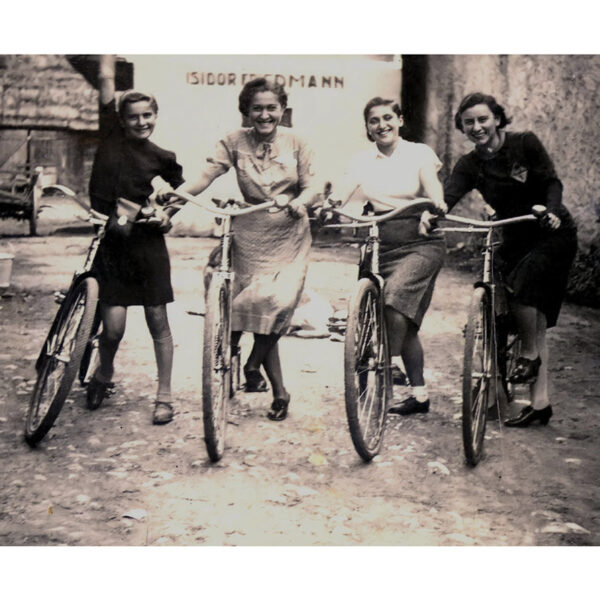FORGOTTEN NO MORE
By Mitch Hurst
By Mitch Hurst

The story starts on March 25, 1942, when 999 unmarried, Jewish women boarded a train in Slovakia. It was meant to be a moment of joy as the women believed they were going to work in a shoe factory in Germany, taking jobs that would help support their families back home.
What they did not know was that the Nazis and their own government was about to deceive them in one of the many despicable, horrific moments of the Holocaust.
Instead of going off to work, these young women were being shipped to Auschwitz— the first women to arrive at the concentration camp where more than 1.1 million men, women, and children lost their lives.
Though only five survived, they displayed a remarkable resiliency. For decades, their story was not widely known or recorded in Holocaust history.
Until now.
The trials and triumphs of these young women were first captured in the best-selling book, 999-The Extraordinary Women of the First Official Jewish Transport to Auschwitz, written by Heather June Macadam, and are now the subject of a new feature documentary— 999: The Forgotten Girls of the Holocaust, produced by Macadam. The film will be screened as part of the JCC Chicago Jewish Film Festival at the Illinois Holocaust Museum & Education Center on June 23.
Macadam has spent more than a decade interviewing survivors of the Holocaust, including five of the 999 young women who escaped their harrowing experience at Auschwitz. The film explores difficult questions: Why women? And why were they chosen?
“As director of the film festival I watch about 250 films a year and she has done a great job with this film,” says Ilene Uhlman, who also serves as Director of Community Engagement for JCC Chicago. “I didn’t know the first official transport to Auschwitz was women, and they were duped, but they signed on thinking they were helping their families.”
Uhlman says the fact that some women survived, including one who is now more than 100 years old, and are able to talk about what happened gives the film special meaning.
“What is interesting is that many of the women knew each other, and I wonder if that led to their resiliency. They are together in this strange place, and you wonder if they supported each other,” Uhlman says. “There were sisters who went … multiple members from the same family where some survived and some didn’t.”
Until a few years ago, women’s Holocaust stories weren’t often highlighted. There could be a variety of reasons for that omission, including details of what some women needed to do to survive. But Uhlman says it could also because women were so focused on rebuilding their lives and families after the Holocaust.
“They were busy … raising children and supporting their families. I think maybe they just wanted to forget,” Uhlman says. “It’s really interesting that we’re hearing these stories now so many years later. My in-laws were survivors and they never talked about it with their kids, never talked about the experience. But they’ll talk about it with their grandchildren.”
The Holocaust Museum has focused strongly on educating younger generations about the Holocaust since it was founded, and Uhlman says those types of educational efforts are having an impact on third and fourth generations of Holocaust survivors who are willing to tell their grandparents’ stories.
The JCC Chicago Jewish Film Festival runs from June 1 to June 21 and, in addition to the 999 documentary, features 22 other films of all genres and for all ages. Along with the Illinois Holocaust Museum, films will be screened at Wayfarer Theaters in Highland Park, Landmark Century Centre Cinema in Chicago’s Lakeview neighborhood, and the Gene Siskel Film Center in downtown Chicago.
“We have really tried to make the films accessible as we can, and we’re pleased the screening of the 999 documentary will cap the festival,” adds Uhlman.
To see the lineup of films at this year’s JCC Chicago Jewish Film Festival, visit jccfilmfest.jccchicago.org.
Sign Up for the JWC Media Email